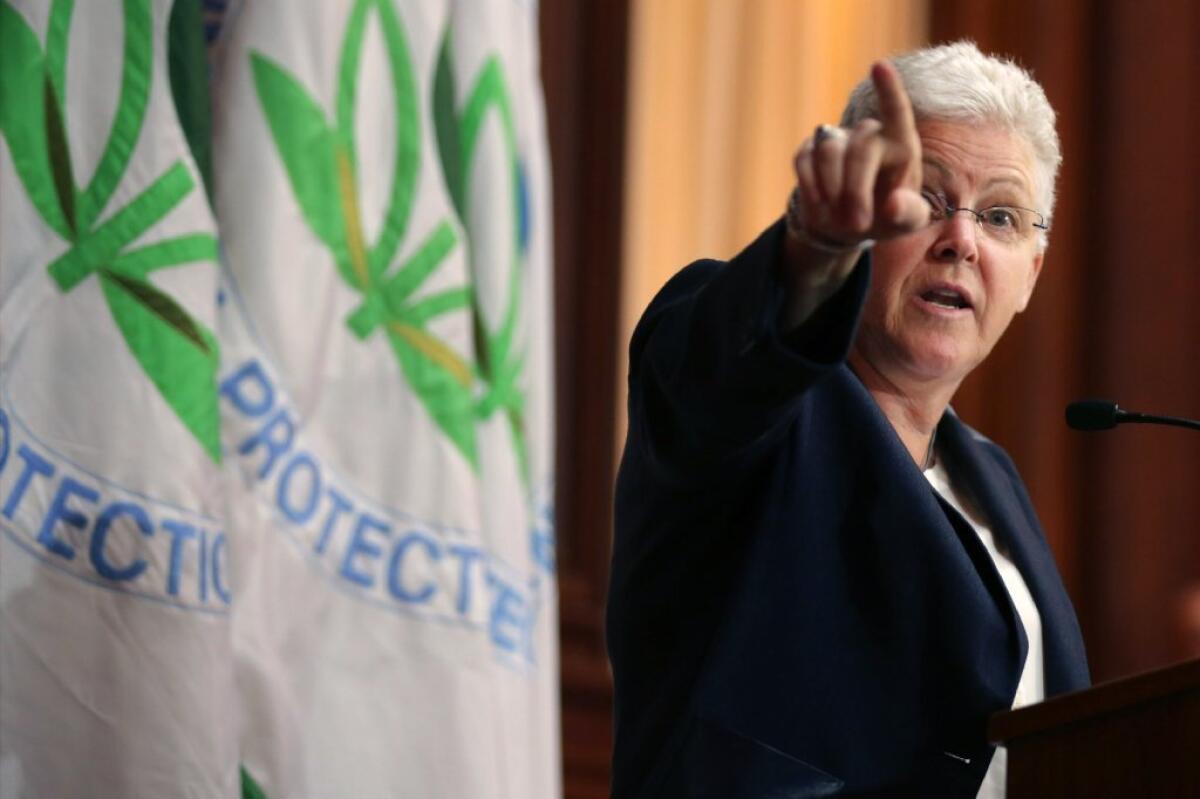Editorial: Congress shouldn’t muddy the waters on the EPA’s Clean Water Act rule

U.S. Environmental Protection Agency Administrator Gina McCarthy is seen in Washington earlier this month.
- Share via
The Clean Water Act, which has been on the books since 1972,, has slowed the degradation of the nation’s lakes, rivers and streams by blocking polluters from using waterways as sewers. Careful oversight by the Environmental Protection Agency has brought many damaged rivers back to health, restoring them as safe drinking water sources and wildlife habitats and allowing them to continue bringing fresh water to environmentally sensitive wetlands.
A pair of U.S. Supreme Court rulings over the last 15 years found some EPA interpretations of the act overly broad, but the court failed to offer clear guidance on what was permissible and left it to the agency to craft rules governing just which waters the act covers. After considering scientific studies demonstrating the interconnection of waterways, and after a long and painstaking rule-making process, the agency proposed a sensible rule and put it out for public comment in March. The comment period remains open through the middle of October.
The proposed rule is especially important in California and elsewhere in the West, where more than half of the rivers and streams are seasonal — swelling with rain in winter and carrying their water to marshes, lakes or the sea, but going dry in the summer. Such streams are the places in which salmon and steelhead spawn, and are often the sources of clean water used for drinking and agriculture. The agency is seeking to make it clear that these waterways are covered by the Clean Water Act and may not be polluted, dug up or filled in.
Now some members of Congress are carrying the dirty water of would-be polluters by attacking the agency’s very public, transparent and evenhanded process. Their tool is a late amendment to spending bills that would prevent another agency — the Army Corps of Engineers — from recognizing or enforcing any change in federal jurisdiction over water pollution. The Army Corps helped the EPA craft the rule and issues permits for projects that comply with pollution laws.
Congress should butt out and let the rule-making process take its course, both because the rule as proposed would restore some (although by no means all) of the protections that seasonal and other intermittent waterways had for years, and also because a spending bill is a sneaky way to derail months of careful work, not just by environmental administrators but by members of the public who have been helping to bring clarity and predictability to the law. Sen. Dianne Feinstein (D-Calif.) deserves credit for keeping the amendment out of her subcommittee. Let’s hope she can help keep the bill clean as it moves through the Appropriations Committee later this week.
More to Read
A cure for the common opinion
Get thought-provoking perspectives with our weekly newsletter.
You may occasionally receive promotional content from the Los Angeles Times.






